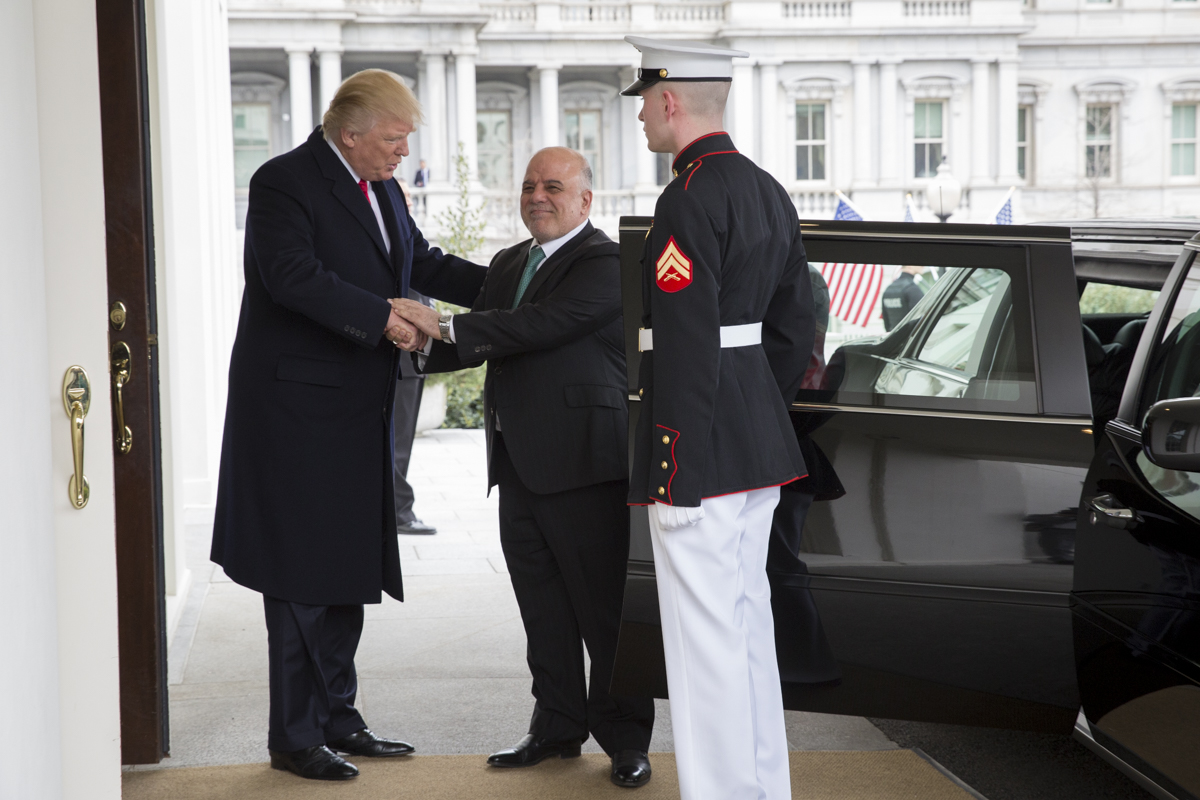Trump: Iraqi leadership very corrupt
In March 2017, Iraqi Prime Minister Haider al-Abadi visited Washington, becoming one of the first foreign leaders to meet the newly-elected US president, Donald Trump.
It now appears the meeting was not as warm and cordial as portrayed then. After seeing Abadi and the delegation he led, Trump called them “the most accomplished group of thieves he’d ever met”—jokingly, according to a former US official who spoke with The Washington Post.
Trump clearly seems aware of the serious problem of corruption in Baghdad. According to Transparency International’s Corruption Index, Iraq ranks among the most corrupt countries in the world: 166 out of 176.
In 2016, while on the campaign trail, Trump described the country, “Iraq, crooked as hell,” and criticized US policy, “How about bringing baskets of money—millions and millions of dollars—and handing it out?”
These reports emerged on the eve of a major international conference in Kuwait to mobilize funding for Iraqi reconstruction after the defeat of the Islamic State (IS) there.
“We are calling for a Marshall Plan to help us with the reconstruction,” Iraqi Foreign Minister Ibrahim al-Jafaari told an international conference in November.
“The world owes us that,” Jafaari said, referring to the US reconstruction of Western Europe after World War II, named after George Marshall, Army Chief of Staff during the war and then Secretary of State, as the US confronted the challenges of its aftermath.
The Marshall Plan cost the US $13 billion—about $140 billion in current dollars.
The US has spent a huge sum of money in Iraq since 2003, when Operation Iraqi Freedom (OIF) began: nearly one trillion dollars, according to official US figures.
That stands in sharp contrast with the very optimistic view of the conflict held by administration officials as OIF began: “cakewalk” in the words of one senior adviser.
Paul Davis, a Pentagon analyst at the time, suggested to Kurdistan 24 that the perspective could charitably be described as “Pollyannish,” emphasizing the US “lack of knowledge about the culture.”
The Trump administration has now said—to the expressed dismay of some Washington insiders—that it will not commit to providing any more money for Iraq at the Kuwaiti conference.
Speaking to Kurdistan 24, Entifadh Qanbar, an Iraqi-American and President of the Future Foundation in Washington DC, emphasized the opportunities for corruption that the conference in Kuwait presented, identifying both Abadi and the Governor of the Central Bank of Iraq as major figures in such schemes.
Just as Trump came into office with a view of the Iraqi leadership at odds in significant ways with the policy that has emerged, the same can be said of Trump’s view of the Kurds.
While Trump spoke negatively of Iraq on the campaign trail, he spoke very positively of the Kurds.
“We should be arming the Kurdish [fighters],” Trump said in 2016.
“They’ve proven to be the best fighters. They’ve proven to be the most loyal to us. They have great heart. We should be working with them much more than we are.”
Source: Kurdistan24

